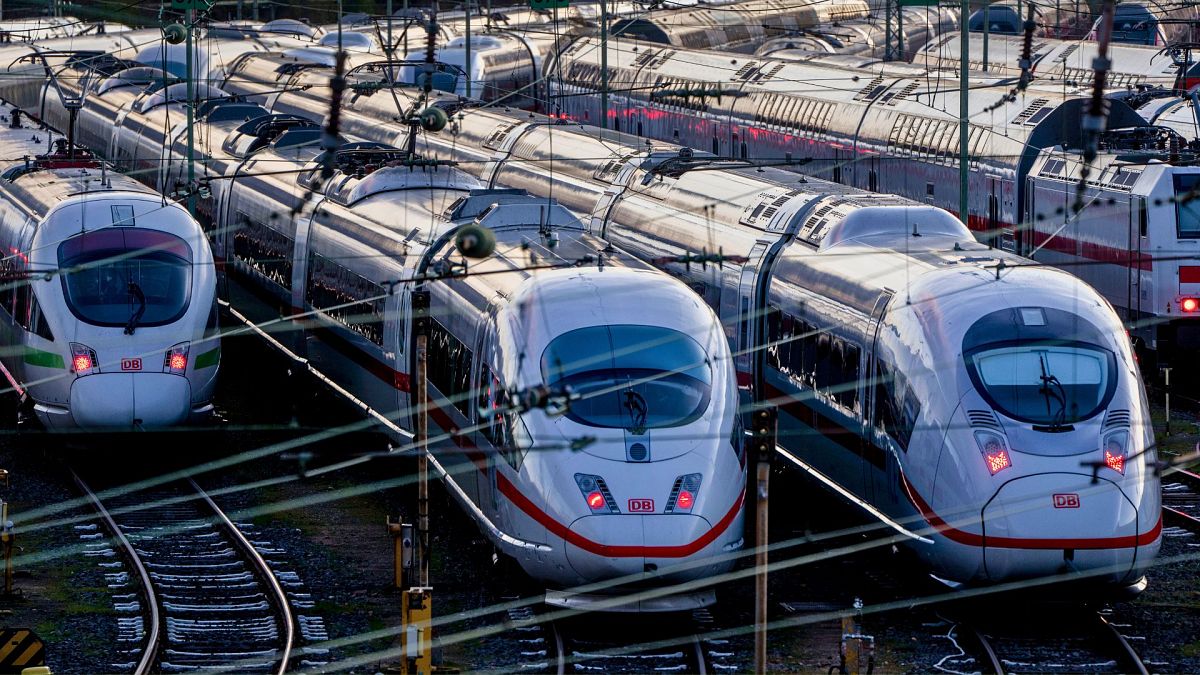Germany’s rail strikes will finally come to an end as train drivers’ union GDL has struck a pay deal with Deutsche Bahn.
Train travellers have already been hit hard by industrial action this year, from a week-long walkout in January to a series of warning strikes in March.
Alongside demanding a pay increase, train drivers have been calling for a reduction in working hours from 38 to 35 per week, without a pay cut.
GDL rejected various offers from state-owned DB in a series of negotiations over the past five months.
Following Monday’s successful negotiations, DB’s HR director Martin Seiler said, “The dispute was tough, but we were now able to agree on an intelligent compromise.”
What did German train drivers want from strikes?
GDL was seeking a raise of €555 per month for employees plus a one-time payment of up to €3,000 to counter inflation.
DB said in January that it made an offer that amounted to an 11 per cent raise. It also said shift workers could move from a 38 to a 37 hour week from 2026, or receive extra pay if they want to remain on their current hours.
However, talks stalled leading to further strikes that brought the country’s rail network to a near standstill. The collective bargaining dispute continued in February, with DB agreeing to reduce working hours gradually to 36 per week by 2028 without a pay reduction, which GDL refused.
Negotiations resumed in mid-March, with GDL agreeing not to strike during the talks.
What deal has been reached between DB and GDL?
The two parties have now announced that they have reached an agreement, meaning there will be no more GDL train strikes in Germany.
Further details of the deal have emerged this morning. DB has reportedly caved to the 35-hour work-week demand, with hours to be gradually reduced by 2029 without a pay cut. Hours will drop to 37 per week in 2026, 36 hours in 2027 and 35.5 in 2028.
Those who choose to work more hours - up to 40 per week - will receive an hourly wage increase of 2.7 per cent.
Seiler called it a “groundbreaking solution that enables flexibility, participation and transformation”.
An inflation compensation bonus of €2,850 has been agreed, DB announced in a press release, while a wage increase of €420 per month will be rolled out in two steps by 2025.
The deal includes a “peace obligation” that ends the possibility of strikes until at least February 2026.


